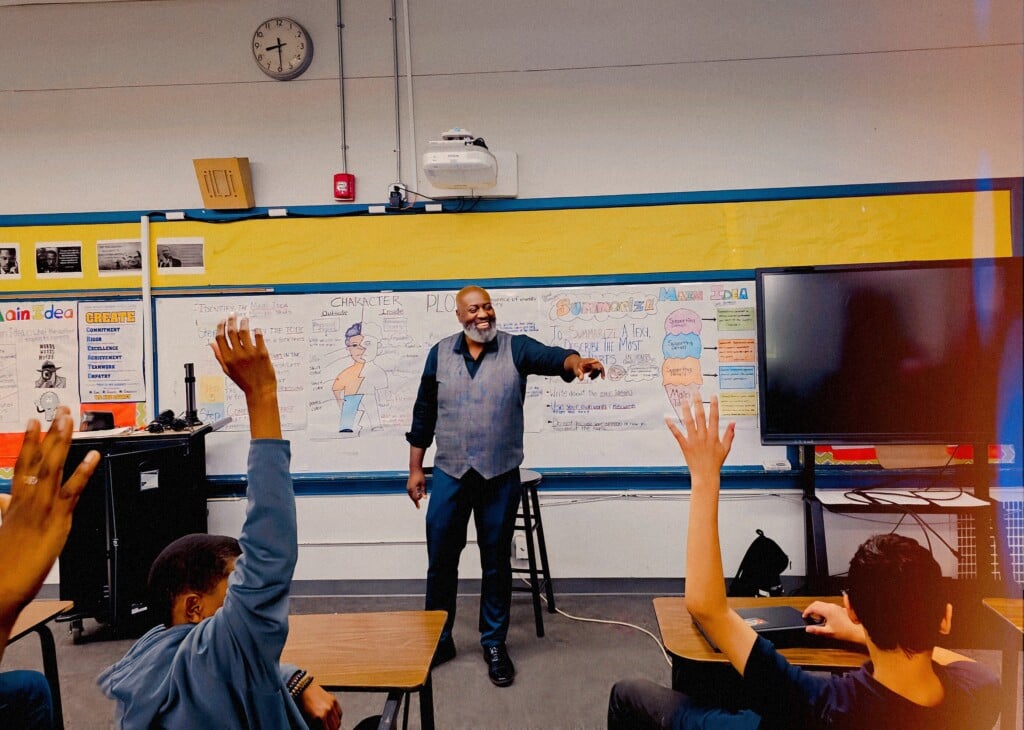Expert Primary Science Tuition Singapore for Understanding Complex Concepts
Expert Primary Science Tuition Singapore for Understanding Complex Concepts
Blog Article
Discover the Vital Advantages of Comprehending Primary Scientific Research for Young Learners
The value of key science education and learning for young learners prolongs much past mere knowledge purchase; it offers as a basic column in creating essential skills such as vital reasoning, analytical, and imagination. Involving with clinical ideas with inquiry-based and interactive tasks not only cultivates interest however likewise lays the foundation for resistant, positive learners.
Enhancing Critical Assuming Abilities
Promoting important believing abilities in young students is vital for their cognitive advancement and future academic success. Crucial reasoning allows children to analyze details, evaluate evidence, and make educated decisions, which are crucial skills in today's information-rich culture. By participating in scientific questions, young learners can enhance these abilities as they discover ideas via observation, trial and error, and reasoning.
In primary science education and learning, instructors can help with essential thinking by encouraging trainees to ask concerns, create theories, and perform experiments. This hands-on approach allows kids to exercise analytic and create logical thinking abilities. As an example, when students explore the buildings of materials or the principles of motion, they discover to examine their searchings for seriously and draw final thoughts based on proof.
Furthermore, conversations and joint tasks can advertise critical thinking by offering opportunities for students to express their thoughts, obstacle presumptions, and think about diverse perspectives. By developing a helpful atmosphere that values inquiry and representation, teachers can nurture essential assuming skills that encourage young students to become lifelong learners and independent thinkers. Ultimately, improving these skills lays a durable foundation for their future scholastic ventures and personal development.
Fostering Inquisitiveness and Exploration

Primary scientific research education and learning supplies an organized atmosphere where young learners can check out numerous phenomena via hands-on experiments and observations. By allowing them to connect with materials and participate in inquiry-based discovering, educators develop opportunities for youngsters to formulate theories, test their concepts, and reason. Such experiences nurture a feeling of wonder and exhilaration about scientific research.

Building Confidence in Issue Addressing
Building confidence in analytical is a critical component of key scientific research education that equips young learners to come close to obstacles with resilience and creativity - primary science tuition Singapore. They develop crucial skills in important thinking and evaluation when children are motivated to engage with scientific principles through hands-on tasks and inquiry-based discovering. This procedure not just you can find out more boosts their understanding of clinical concepts however likewise cultivates a sense of possession over their discovering
To develop confidence, teachers should produce a supportive atmosphere where blunders are considered as opportunities for development as opposed to failures. This motivates pupils to take dangers and discover various options to problems. By supplying scaffolding and guidance, instructors can aid students browse complicated jobs, gradually boosting their freedom in problem-solving circumstances.
In addition, joint learning experiences, such as group projects or experiments, can even more improve students' confidence as they learn to articulate their ideas and pay attention to others' viewpoints. These communications nurture social abilities and enhance the concept that analytical is usually a cumulative undertaking. Eventually, growing self-confidence in analytical prepares young learners for future academic challenges and equips them with the devices needed for long-lasting understanding.
Urging Imagination and Development
In the world of main science education and learning, urging imagination and development is essential for growing a dynamic learning setting. By promoting a culture where young students can check out concepts and experiment easily, educators assist students create important thinking abilities and an enthusiasm for discovery. Creative thinking in science encourages kids to ask questions, create hypotheses, and participate in hands-on activities that stimulate their creative imagination.
Incorporating flexible tasks and inquiry-based discovering into the educational program permits students to share their one-of-a-kind perspectives and remedies. For example, when entrusted with resolving a problem relevant to their environment, students can conceptualize multiple approaches, causing inventive outcomes that display their creativity. This not just deepens their understanding of scientific concepts however also instills a sense of ownership over their discovering procedure.
Moreover, imaginative scientific research education and learning supports cooperation amongst peers, as trainees navigate to these guys often share ideas and build on one another's insights - primary science tuition Singapore. This collaborative spirit promotes not only innovation but also vital social skills. Thus, by prioritizing creativity and development in main science education, we empower young learners to believe critically, accept difficulties, and imagine possibilities, laying a strong structure for long-lasting understanding and expedition
Planning For Future Understanding Obstacles
Young students' capacity to navigate future learning challenges hinges on a solid structure in key scientific research education and learning. This fundamental understanding outfits pupils with important assuming abilities and a systematic technique to analytical, crucial for taking on intricate concerns in an ever-evolving world. Main science cultivates inquiry-based knowing, encouraging trainees to ask questions, explore theories, and take part in hands-on experiments.
As they create these skills, students become experienced at evaluating information, acknowledging patterns, and attracting notified verdicts. Such expertises are vital not just in scientific fields yet also in design, innovation, and math (STEM), where interdisciplinary expertise is increasingly critical.
Moreover, primary science education and learning grows a feeling of inquisitiveness and resilience in young learners, enabling them to check out obstacles as opportunities for growth. As they experience and get rid of challenges in their clinical expeditions, they develop self-confidence in their capacity to adjust and introduce.
Inevitably, a solid structure in main scientific research not only prepares young learners for academic quests however likewise furnishes them with the tools required for lifelong knowing and adaptability in a quickly altering global landscape. By buying primary scientific research education, we are purchasing the future potential of our learners.
Conclusion
Understanding primary science is essential for young learners, as it fosters critical thinking, inquisitiveness, and creative thinking. Involving with clinical principles with hands-on experiments enhances analytical abilities and constructs durability. This foundational expertise not only equips pupils to analyze data and identify patterns from this source however likewise supports an inquiry-based frame of mind. Ultimately, the advantages of main scientific research education and learning prepare children for future academic searches and infuse lifelong knowing behaviors crucial for prospering in an ever-evolving globe.
The value of key science education for young learners expands much beyond mere understanding procurement; it offers as a basic column in developing vital abilities such as essential thinking, problem-solving, and imagination. By producing an encouraging setting that values questions and reflection, educators can nurture crucial believing skills that equip young learners to end up being long-lasting students and independent thinkers. Therefore, by focusing on creative thinking and advancement in primary science education, we empower young students to assume seriously, welcome obstacles, and imagine opportunities, laying a strong foundation for lifelong learning and exploration.
Young students' capacity to browse future discovering difficulties hinges on a solid structure in key scientific research education.Comprehending primary science is essential for young learners, as it cultivates important reasoning, interest, and creativity.
Report this page